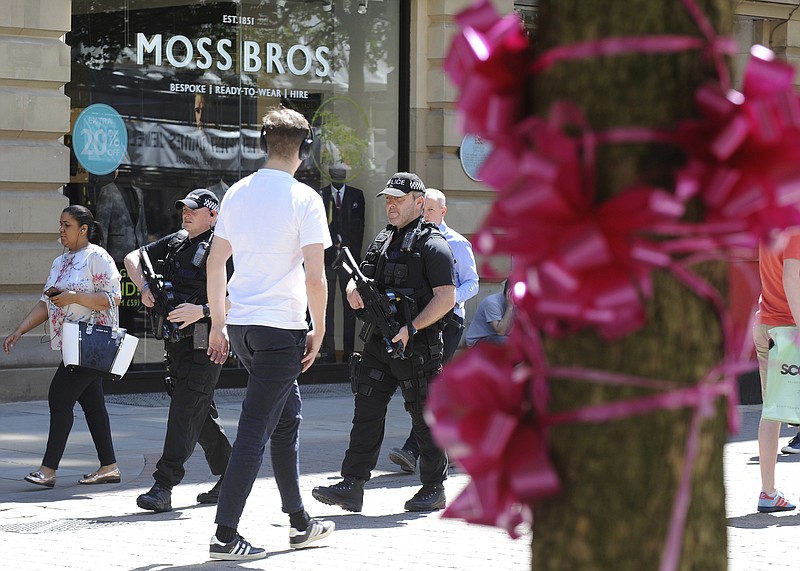To witness a suicide bombing up close is to understand, at its etymological root, the meaning of the word "carnage."
A bomb packed with nails, ball bearings and metal scraps - the sort that Salman Abedi detonated in Manchester Monday night - doesn't just kill. It shreds.
Human beings are turned, instantly, into scraps of bone, organ and flesh. The smell of explosives mingles horribly with that of charred skin, burned metal, melted plastic and enormous quantities of blood.
The bomber dies, too. The act turns the perpetrator into somebody's martyr while denying his victims the possibility of justice. Mockery from beyond the grave thus compounds the nihilism of the act: "I got you; you can never get me."
Thirteen years ago, on Azza Street in Jerusalem, I saw a man's body on a blown-up bus swaying back and forth, as if reciting a final prayer. He was one of 11 victims that day, in a bombing that took place a block from where I lived. It's a sight that's never left me.
I offer this description to make the point that our intellectual understanding of terrorism will be stunted if we lack a visceral understanding of it. The standard definition of terrorism - "the unlawful use of violence and intimidation, especially against civilians, in the pursuit of political aims" - anesthetizes reality.
To start: Terrorism is not, in the manner of Carl Von Clausewitz's definition of war, a continuation of politics by other means. More often than not, it is the negation of politics - by any means.
Also: Any analysis of the Islamic State's motives and strategy has limited utility. Its murder sprees are incidentally instrumental but fundamentally self-justifying. It kills to kill.
This being so: The Islamic State and other jihadi groups do not require pretexts for violence. The core jihadi objection to the West concerns our values, not our policies. The brave journalists at Charlie Hebdo weren't murdered for advocating neoconservative positions.
Further: Let's stop calling terrorists "thugs and killers," as Barack Obama used to do. Let's not call them "losers," either, as Donald Trump did this week. Suicide bombing involves a form of immortality seeking that has religion deep in its roots. Only some sort of God could summon, and justify, such promiscuous savagery.
Moreover: Elaborate semantic evasions of the word "Islamic" fool nobody and help nothing. To note that Hamas, al-Qaida or Islamic State are, by their own emphatic declarations, Islamist enterprises shouldn't be politically controversial. Communism could not have been defeated without an ideological struggle that picked away at its moral assumptions. The struggle against Islamism isn't so different.
That said: The death cults driven by millenarian impulses are a universal phenomenon, perniciously present within the Islamist fold today but not culturally or historically unique to it. The black banners that are emblems of terror in this century are merely the continuation of the red banners that defined terror in the previous one.
Love does not conquer hate: If it did, the only casualty in Manchester would have been Abedi himself. To seek to overcome terrorism by pledging, as Obama did in 2013, to move on from it, mainly succeeds in tempting its return. The Islamic State, it still bears repeating, was once somebody's JV team.
What conquers hate is the only defensible form of hate: hatred of evil.
Without such hatred, the Manchester Arena becomes just another site of random but predictable outrage, along with the Bataclan theater, the Pulse nightclub, the Zaventem airport, the promenade in Nice, the school in Peshawar, the Dolphinarium in Tel Aviv. It goes down the memory hole, and makes a mockery of our collective promise to never forget.
I wish I'd never seen what I saw that morning in Jerusalem, but there is no such thing as unseeing. The carnage inflicted on Manchester can still serve a purpose if we try not to avert our gaze too soon.
